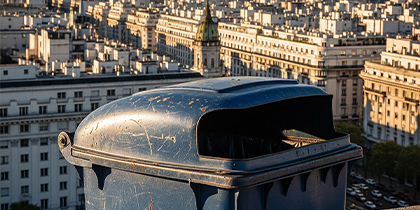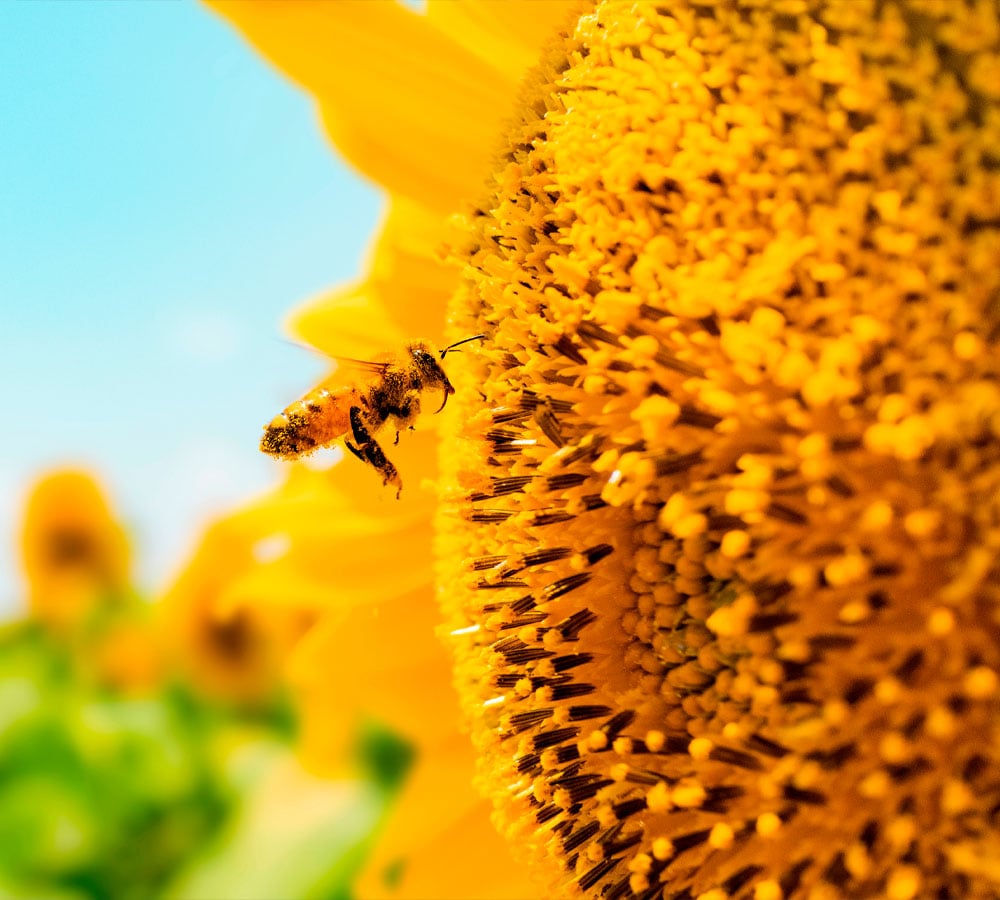In the blog series "A look at waste from..." we look beyond the borders of the Netherlands and Belgium. Because how do other cities and countries deal with their waste streams? What can we learn from them- and what not? In this blog, we zoom in on Sri Lanka.
The South Asian island is known for its historic stupas, wild elephants, Buddhism and vast tea plantations. After a protracted civil war and economic crisis, the country is now in the process of rebuilding, with a tourism sector that is growing at lightning speed. In 2022, over 720,000 tourists visited Sri Lanka; by 2024, 2.05 million. Content Marketer Maaike Lesuis took a look at the waste streams of the tropical island, which is about 1.6 times the size of the Netherlands.
Waste streams in Sri Lanka: the figures
Sri Lanka produces an estimated 6,500 to 7,000 tons of municipal waste daily. Of this, about half is collected by local authorities. Collection frequency varies greatly by region and even by neighborhood. In urban areas-such as parts of Colombo and Kandy-there is often daily or multi-day collection, while in residential areas waste is more likely to be collected 1-3 times a week. In rural areas, it sometimes does not happen at all, causing residents to burn or dump waste (illegally) .
Waste separation at source takes place on a limited scale (mostly organic separated from non-organic waste). In practice, streams regularly still end up mixed in the same cart or at the landfill.
The extent of litter
Along the coast-especially the east and south coasts- plastic bottles, packaging, fishing nets and microplastics stand out. Research shows that only 0.9% of the litter found was of foreign origin. About 90% appears to be litter from Sri Lanka itself, often moved to the coast via rivers and canals. This is compounded by poor waste collection in the remote coastal areas, so plastic and other waste easily ends up in the sea.
.jpg?width=419&height=419&name=LinkedIn%20(74).jpg)
Laws and regulations in Sri Lanka
Sri Lanka has introduced increasing regulations in recent years to reduce waste and plastic pollution. For example, burning garbage (including plastic) has been banned nationwide since 2017. Enforcement is proving challenging, so that rule is still often not enforced in practice.
In 2023, the policy was further tightened with a ban on single-use plastics, including plastic straws, stirrers, plates, cups and cutlery. In addition, the Ministry of Environment presented the National Action Plan on Plastic Waste Management in 2021. This plan includes ambitious goals, such as full processing of collected plastic waste, a 30 percent reduction in packaging plastic by 2030 and the introduction of EPR, the extended producer responsibility.
Waste management is largely the responsibility of local governments, such as municipal councils and Pradeshiya Sabhas. They determine how often waste is collected, what collection points there are and which streams are separated. Compliance also remains difficult due to limited resources, infrastructure and oversight.
A look to the future
Despite current challenges, there are plenty of opportunities for Sri Lanka to address waste challenges. Regular and reliable waste collection, including in rural areas, helps reduce doorstep burning and illegal dumping. In addition, providing more separation options, combined with appropriate infrastructure, can ensure that fewer valuable resources are lost. Today, it is estimated that nearly half of the waste collected still ends up in landfills.
If Sri Lanka can address its waste challenges as quickly as tourism grows, the country can not only preserve its natural beauty, but also become an example of sustainable waste management internationally for other Asian countries.
Stayinginformed
Want to stay up to date on all new developments? Follow us onLinkedIn, listen to the podcast "Resource for Thought" or subscribe to the newsletter. Are you curious about what Milgro can do for your operations and waste process? Then get in touch.













